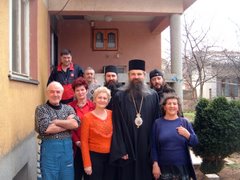Rueker Pushes For Quick Solution
New Kosovo chief urges sides to keep up momentum
September 13, 2006 7:16 PM
UNITED NATIONS-The new U.N. administrator for Kosovo on Thursday backed a timeline that seeks to determine Kosovo's future by the end of the year, and urged the sides not to lose momentum despite slow progress between Kosovars and ethnic Serbs over the fate of the tiny province.
Joachim Ruecker warned that the lack of a solution could lead to frustration that would only worsen tensions between the two sides. U.N. mediators have been trying to find a compromise between the demand of Kosovo's ethnic Albanian majority for independence, and the demand of the Serb minority and Belgrade that Serbia retain some control over the province.
"Delay will not bring reconciliation," Ruecker told the U.N. Security Council. "Delay will not bring economic recovery. Delay will only prolong the existing tensions in Kosovo society which will feed frustration and make the new start, when it does come, even harder to get right."
The council was meeting to discuss a recent report from U.N. Secretary-General Kofi Annan which said there had been some progress in implementing a raft of benchmarks for Kosovo, including establishing democratic institutions, protecting minorities and promoting economic development.
Yet significant problems remain, including the issue of minority rights, Ruecker said. In August, Kosovo's Serbs boycotted the negotiations, saying they would not accept being treated as a minority group.
Serbia's envoy Sanda Raskovic-Ivic painted a dire picture of the plight of ethnic Serbians there, saying they can be killed simply for speaking their own language. She said there had been dozens of attacks on ethnic Serbs and warned that it was unwise to go too fast on negotiations.
"Impatience and haste cannot contribute to a sustainable solution to the issue of Kosovo ... or to peace and stability in the region," Raskovic-Ivic told the council.
Even before her remarks, Ruecker said it was simply wrong to portray Kosovo as unsafe for ethnic Serbs, and that doing so was not helpful.
Kosovo's ethnic Albanians took up arms in 1998 to secede from Serbia, triggering a brutal government crackdown that led to NATO military intervention in 1999. The intervention eventually forced Serbia to hand over authority of Kosovo to a temporary U.N. administration and NATO peacekeepers.
Unresolved issues have already been discussed between the ethnic Albanian and Serbian delegations in U.N.-mediated talks held last month in Vienna, Austria, but no agreements have been reached.
The next round of talks will be held Friday in Vienna, Austria, and foreign ministers from several nations planned to meet during the annual U.N. General Assembly session in New York next week on Kosovo as well.

















